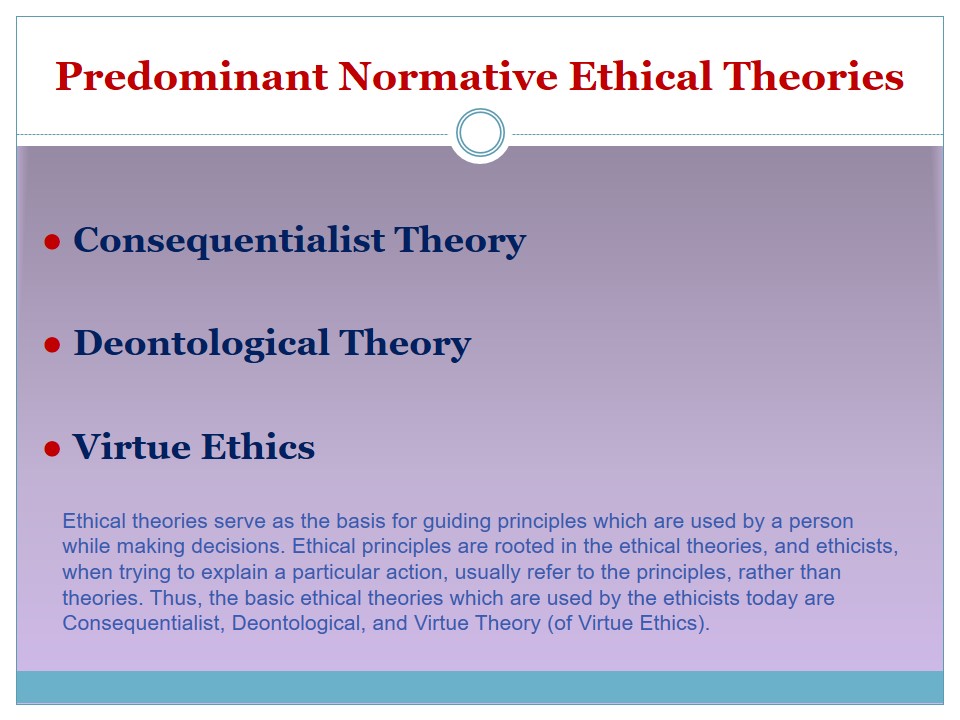
Consequentialist, Deontological, and Virtue Ethics Ethical Theories 1692 Words Presentation
Consequentialism is a broad school of ethical theory. There are many different forms of consequentialism depending on how one values outcomes. For example, welfare consequentialism, or welfarism, maintains that all that matters or is good is welfare, or well-being. The right act is the act which maximises well-being.

Normative Ethical Theories Deontology, Consequentialism, & Virtue Ethics BIOETHICS YouTube
Deontology, consequentialism, act choices, and framing effects We manipulated framing (positive vs. negative) and act certainty (act with certain vs. risky outcomes). Deontological versus.

A comparison consequentialism vs deontology vs virtue ethics Artofit
Unlike consequentialism, which judges actions by their results, deontology doesn't require weighing the costs and benefits of a situation. This avoids subjectivity and uncertainty because you only have to follow set rules. Despite its strengths, rigidly following deontology can produce results that many people find unacceptable.
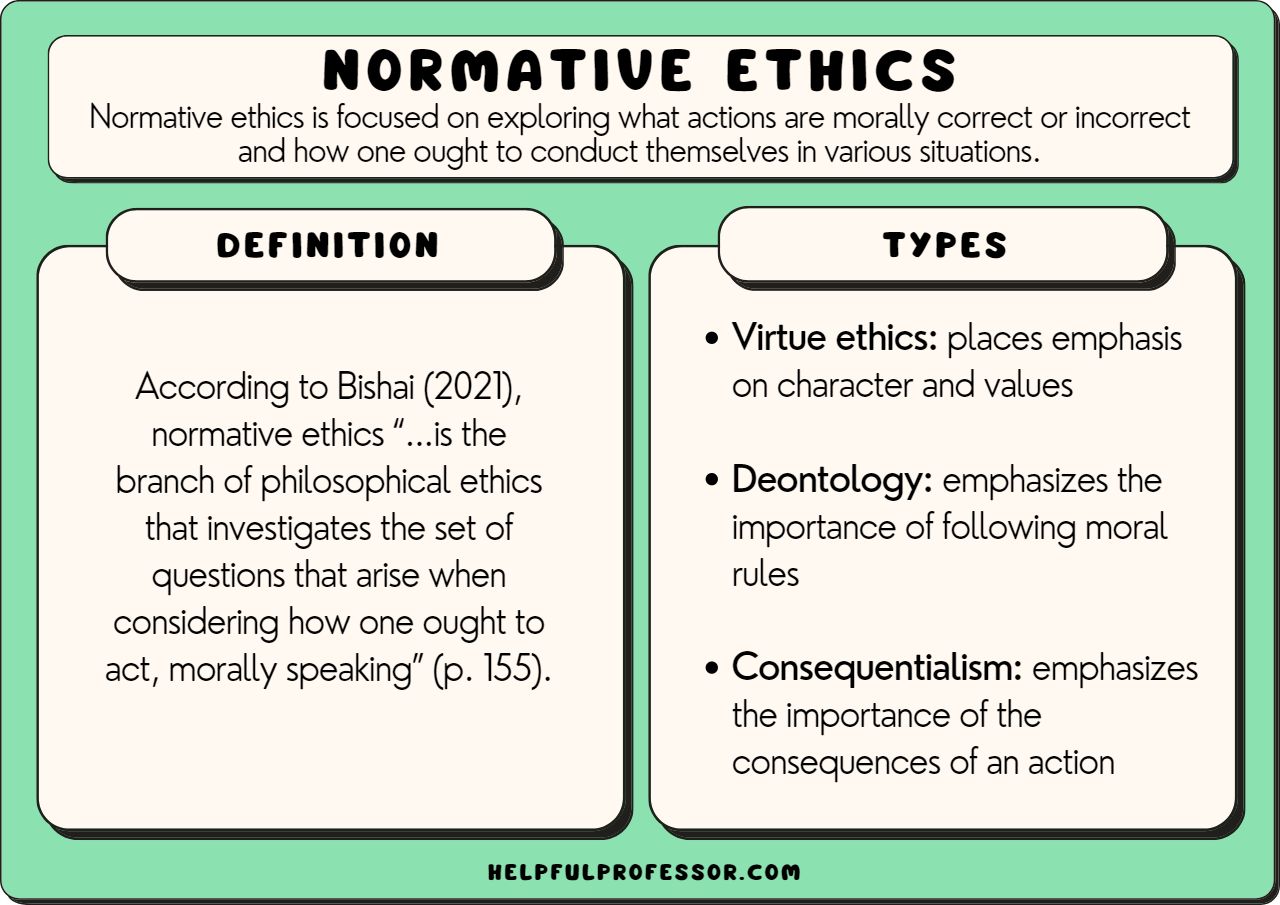
Normative Ethics Theories (with Examples) (2023)
The main difference between deontology and consequentialism is that deontology focuses on the rightness or wrongness of actions themselves. Whereas, consequentialism focuses on the consequences of the action. Deontology and consequentialism are two contrasting, normative ethical theories that determine the morality of an action.

PHI 204 Ethical Issues in Health Care Consequentialism, Deontology
However, consequentialism focuses on judging the moral worth of the results of the actions and deontological ethics focuses on judging the actions themselves. Consequentialism focuses on the consequences or results of an action.

Deontological Consequential Ethics Consider these quotes The remarkable
Deontology vs. Consequentialism By Kenneth Ortiz Posted March 5, 2023 In Articles, Ethics, Morality, Philosophy In 2006, the show Dexter aired. It was a hit. I've never watched the show, but several of my friends loved it. The show paves the way for an interesting ethical debate.

10 Consequentialism Examples (2023) (2023)
VIRTUE ETHICS, DEONTOLOGY, AND CONSEQUENTIALISM 2 1. Introduction In the field of ethics, various theories have attempted to set themselves apart as the "right" one, i.e., as superior to the rest.
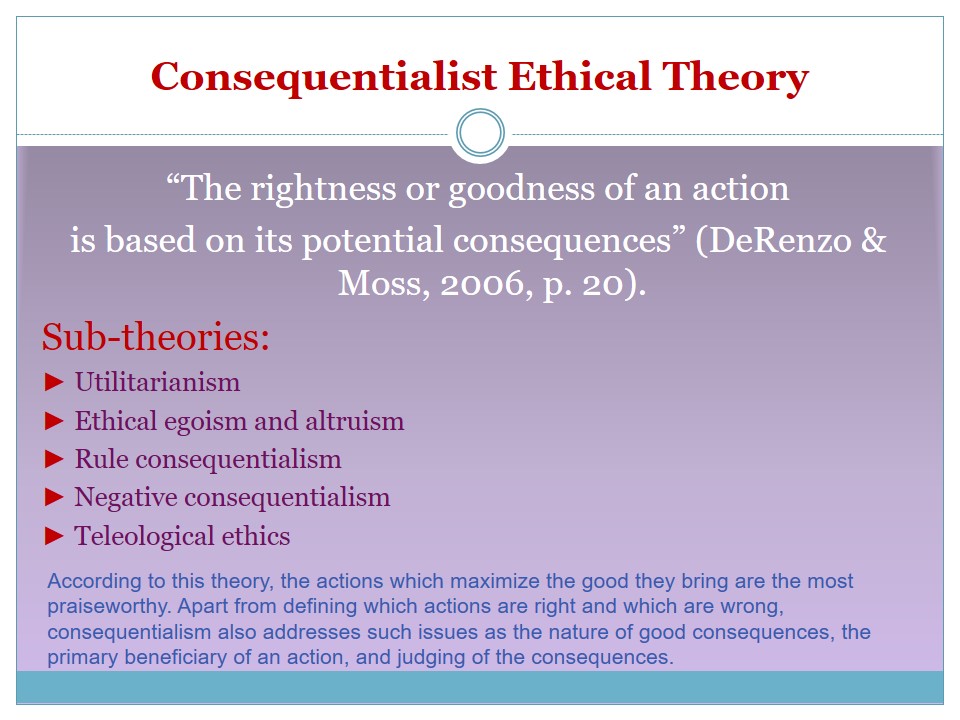
Deontological Ethics Example
Deontology's Foil: Consequentialism Because deontological theories are best understood in contrast to consequentialist ones, a brief look at consequentialism and a survey of the problems with it that motivate its deontological opponents, provides a helpful prelude to taking up deontological theories themselves.

Ethics Deontology Versus Consequentialism Lesson 1 Kant YouTube
This chapter first examines Sidgwick's critique of deontology and defence of consequentialism, arguing that it is repeatedly unfair, holding the principles it criticizes to standards Sidgwick did not apply to his own consequentialist axioms, and in particular fails by lacking Ross's concept of prima facie duty; this shows both in Sidgwick's crit.
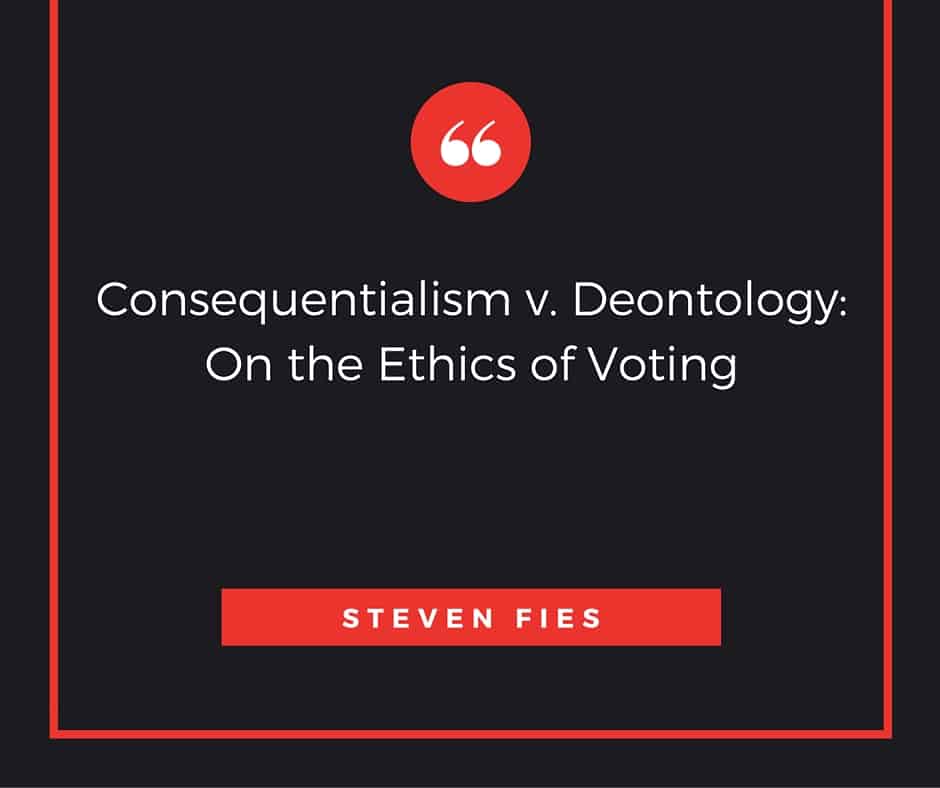
Consequentialism vs. Deontology On the Ethics of Voting
Consequentialism is usually contrasted with deontological ethics (or deontology ): deontology, in which rules and moral duty are central, derives the rightness or wrongness of one's conduct from the character of the behaviour itself, rather than the outcomes of the conduct.

Comparing Consequentialism, Deontology, and Virtue Ethics
Virtue Ethics Consequentialism, deontology, and virtue ethics are moral theories that evaluate morality on the basis of different factors. This Buzzle post explains the consequentialism vs. deontology vs. virtue ethics comparison. Subtle Distinction
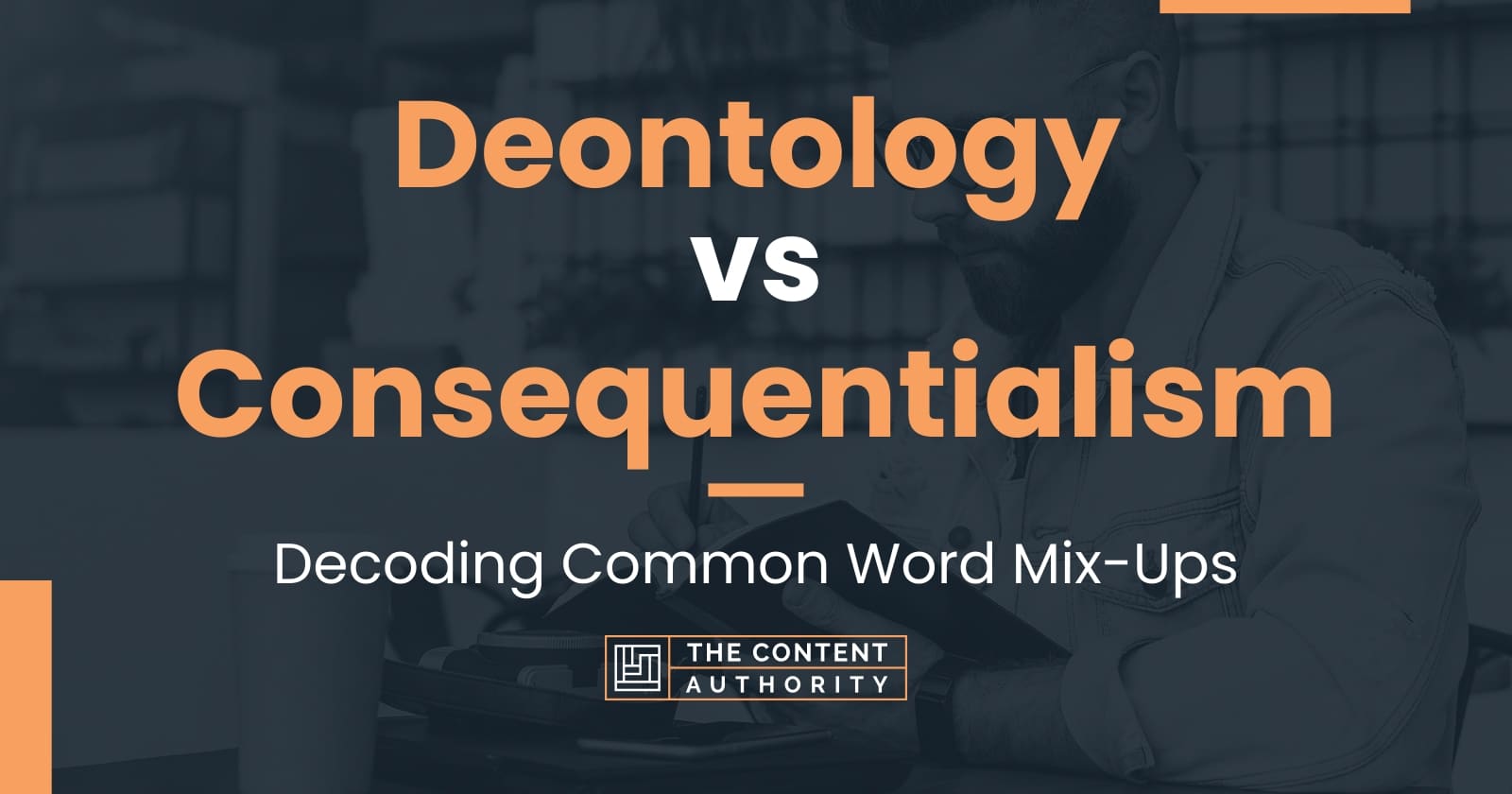
Deontology vs Consequentialism Decoding Common Word MixUps
Deontology is usually contrasted with consequentialism (and both with virtue ethics). Whereas consequentialists maintain that the right action is determined solely by its consequences, deontologists deny this and hold that the right action is not determined solely by its consequences.
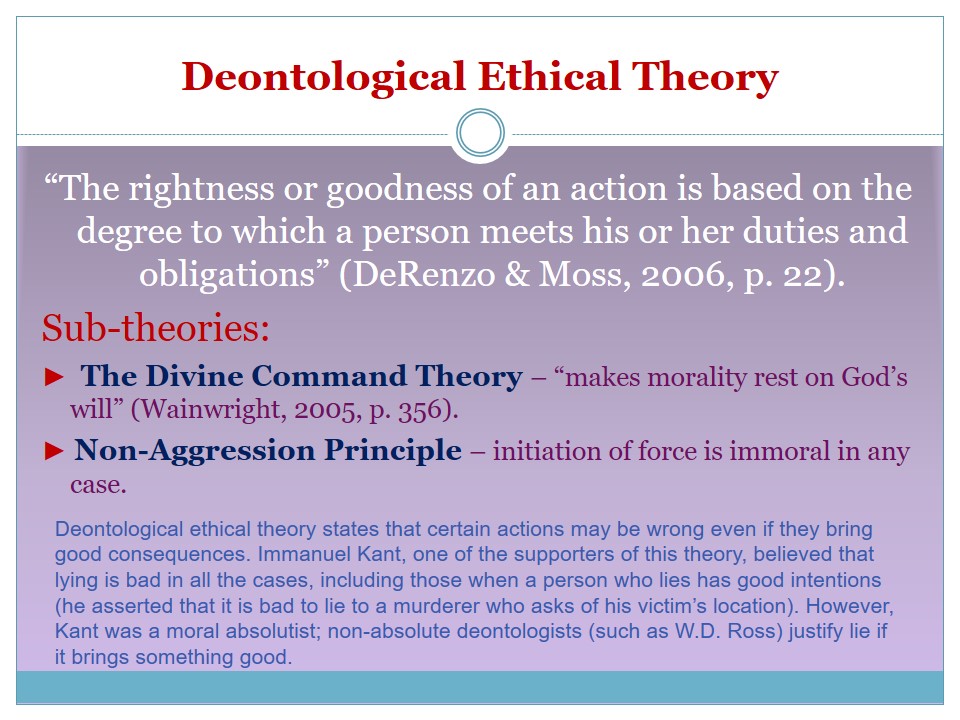
Consequentialist, Deontological, and Virtue Ethics Ethical Theories 1692 Words Presentation
The answer is not so simple. Both deontology and consequentialism have their strengths and weaknesses, and each can be applied in different situations. In the following sections, we will take a closer look at each theory and examine its key features. Define Deontology
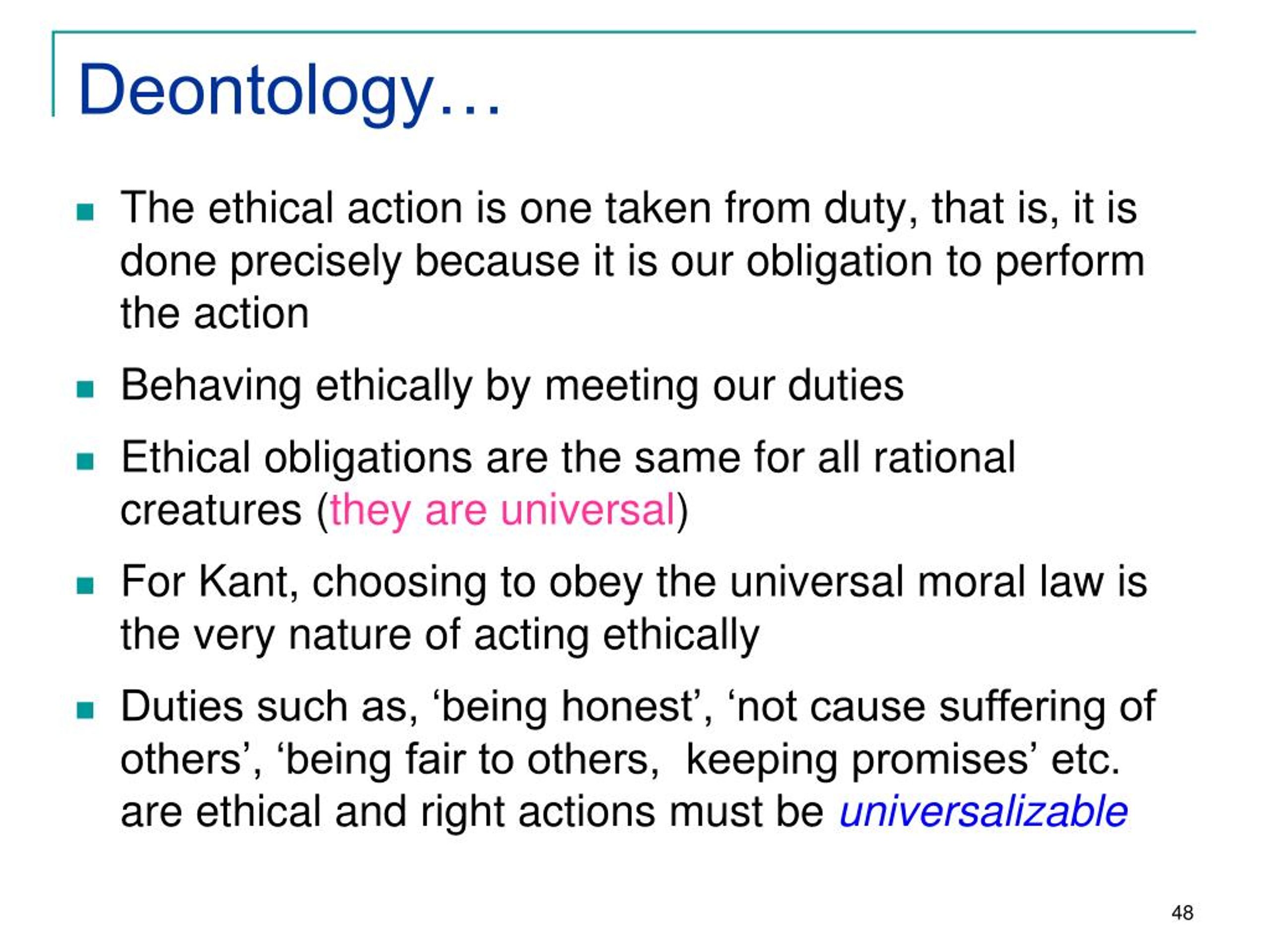
PPT introduction to health Ethics PowerPoint Presentation, free download ID7501682
Consequentialism, also known as teleological ethics, is an ethical theory that focuses on the consequences or outcomes of actions. According to this perspective, the morality of an action is determined solely by its consequences. In other words, the rightness or wrongness of an action is evaluated based on the overall outcome it produces.
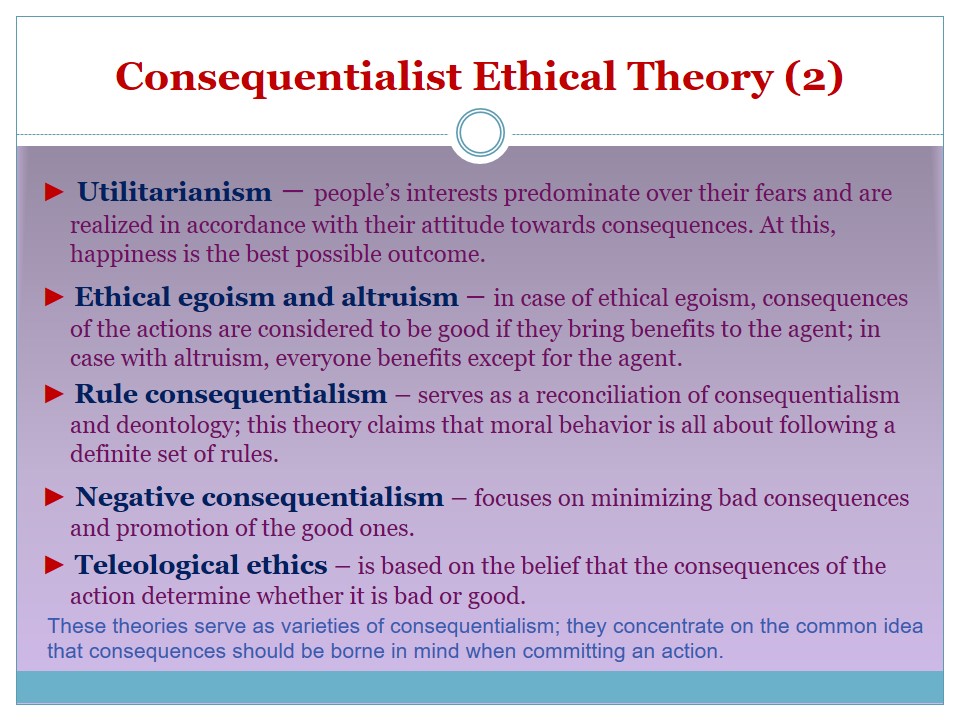
similarities between deontology and consequentialism
Consequentialism First published Tue May 20, 2003; substantive revision Wed Oct 4, 2023 Consequentialism, as its name suggests, is simply the view that normative properties depend only on consequences.

PPT What is Ethics PowerPoint Presentation, free download ID437065
Virtue Ethics. Virtue ethics is currently one of three major approaches in normative ethics. It may, initially, be identified as the one that emphasizes the virtues, or moral character, in contrast to the approach that emphasizes duties or rules (deontology) or that emphasizes the consequences of actions (consequentialism).